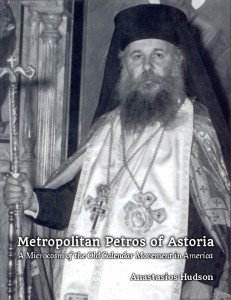Eastern Orthodox, Greek Orthodox, Orthodox Christian?
Different people use different names to describe the Orthodox Christian Church: Orthodox, Greek Orthodox, Orthodox Christian, and Eastern Orthodox are just some of the terms employed. They all actually refer to the same Church, but the different terms owe mostly to the different perspectives of those describing the Church.
At its most basic level, the Orthodox Church believes itself to be the New Testament Church, which has continued uninterrupted since then until the modern day. For Orthodox Christians, it is simply enough to refer to themselves as “The Church.” However, historically, as various sects formed, and in our modern, pluralistic society, where there are multiple denominations calling themselves Christian Churches, it became necessary to distinguish between them. Here is where the different terms come in to play.
Historically, as other groups claiming to be Christians arose who held views divergent from the Church of Christ arose, councils were called to settle the disputes. Those who held the original faith as defined by the Councils were the Orthodox: “right believing” or “right worshiping” is the basic definition of this term. Those who held divergent views were called heretics, the root of which is a Greek word meaning “to choose” as in to choose a separate belief from the Church, or heterodox (non-Orthodox) to refer to those who did not themselves leave the Church but are born in non-Orthodox Churches.
Eastern Orthodox is a term which is often found in history textbooks and encyclopedia entries. Since most English-speakers are Protestants or Roman Catholics, both Churches descended from the Western regions of Europe, naturally the Orthodox Christians are “Eastern” in orientation from their perspective. Often, the term has a sort of exotic feel to it, as Eastern Orthodox are imagined to be a mysterious and not-well-known flavor of Christianity not often encountered. As “Eastern” Orthodox move in to the West and more and more Westerners become Orthodox Christians, however, this term has lost a lot of its original meaning.
Greek Orthodox is another term that further clarifies the origin of the Church. The first Orthodox Christians in North America were mostly immigrants from various locations in Eastern Europe and the Middle East, such as Romania, Serbia, Greece, Russia, and the Ottomon Empire, so naturally the natives referred to themselves as “Greek Orthodox” or “Russian Orthodox” in order to clarify which Orthodox nation they came from. However, all of these Orthodox Christians shared the same faith, despite being Russian, Greek, Serbian, or as time went on, American converts and native-born American Orthodox. Americans often found it a convenient label that described both one’s origin and his faith.
As more and more Americans embrace Orthodox Christianity, the original Christian Church, however, they are finding that the Church can exist naturally in an American context as well. In this multi-cultural society, it is no longer as important to refer to one’s origins, and Orthodoxy is well-suited towards integrating with new cultures it encounters. For these converts, then, it is not natural to refer to themselves as Greek Orthodox or Russian Orthodox, when they themselves are Americans. The terms persist though, because they are more than just ethnic titles, but describe the historical place where the faith originated as well.
Nativity of the Holy Theotokos is a Greek Orthodox Church in Greenville, North Carolina. It is an Orthodox Christian Church, and it is Eastern Orthodox. It is all of these things, but most importantly, it is open to all people, whether they be Black, White, Hispanic, American, Greek, Russian, or of any other background. We have parishioners from several backgrounds, and are happy to have anyone of any background participate in our prayer and fellowship. All are welcome here.


